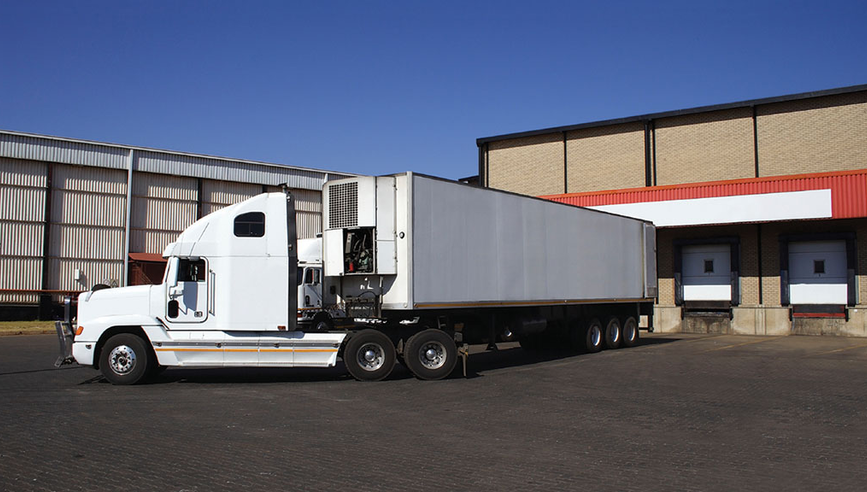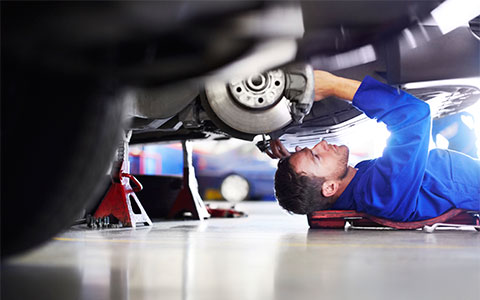Keeping Refrigerated Cargo Cool and Secure


Few types of cargo are more sensitive to loss than a load of refrigerated goods. Summer heat, the speed at which cargo can spoil—or be rejected if not kept at ideal temperatures—and high-value loads can combine to create a perfect storm that can lead to a large cargo loss. Here are steps you can take to help reduce the risk of a refrigerated cargo claim.
Maintenance and inspection
Follow recommended vehicle inspection and maintenance procedures to ensure your vehicle, trailer and refrigeration unit are in good working order. Inspect for problems that might affect the cooling unit’s performance, such as holes in the trailer, damaged air chutes or door seals, plugged floor channels, etc. The trailer should be clean and free of odors or other contaminants. Check the fuel, oil and coolant levels of the refrigeration unit.
Pre-cool
When loading refrigerated product, pre-cool the trailer to the desired temperature. This also offers an opportunity ahead of time to verify that the refrigeration unit is working properly before you load any cargo.
Check the temperature
The required temperature should be noted on the bill of lading. Use a pulp thermometer to test the temperature of the product before loading to make certain it matches the required transit temperature. The product should not be accepted unless the temperature matches the required transit temperature as most cooling units are only designed to maintain product temperature, not change it. Document on the shipping papers and report any discrepancies between the product temperature and the intended transit temperature. Upon delivery, verify and document the temperature of the load on the bill of lading again. This can help defend against potential claims that the cargo was not delivered at the correct temperature.
Loading
Since cooling units generally blow air toward the rear of the trailer, keep the refrigeration unit off while loading or unloading. This helps reduce unwanted air exchange that can cause the temperature inside the trailer to fluctuate.
Airflow
Make certain the product is loaded so that it does not obstruct airflow inside the trailer. The cooling unit must be able to circulate air around the product to eliminate hot or cold spots. Floor channels should not be blocked by debris.
Monitoring
Monitor the refrigeration unit during operation to ensure it maintains the desired temperature. Observe warning indicators that may appear if the unit senses that the box temperature is out of range or has stopped operating. If a cooling unit malfunctions in any way, report the problem to your company immediately. Even if the cooling unit is working adequately, a minor mechanical problem could lead to failure later.
Parking
While it is not recommended that you leave temperature-sensitive cargo unattended, there may be times when there is no other option. If this is the case, ensure the unit has sufficient fuel to continue operating. Plan ahead for unforeseen changes in the weather or delivery schedules. The outside temperature could change dramatically from one day to the next, requiring the refrigeration unit to consume more fuel. Dispatch schedules may change, requiring the refrigeration unit to remain parked longer than anticipated.
Security
If it is not possible to stay with the load, give careful consideration to where the unit may be left as dropped trailers are prime theft targets. Unattended trailers can also invite malicious tampering with the trailer or refrigeration controls. Many shippers seal trailers to guard against and detect tampering. A broken seal might cause the shipper to reject the load. If a seal must be broken for any reason, notify the shipper and receiver and get authorization in advance.
Temperature recording devices
Recording devices can help protect you. These devices may be required for some highly-sensitive or valuable. They can help defend against a claim by providing proof that the cooling unit functioned properly and the product was transported at the correct temperature.
If an incident does occur en route, it is important to act quickly to prevent cargo damage. In some cases, taking the load to a cold storage facility for safekeeping, or contacting another trucking company that may can offer a trailer to keep the cargo refrigerated, might be options to explore.
Doc#:LCT122




